Unit 4 Earthquakes全单元课件
文档属性
| 名称 | Unit 4 Earthquakes全单元课件 | 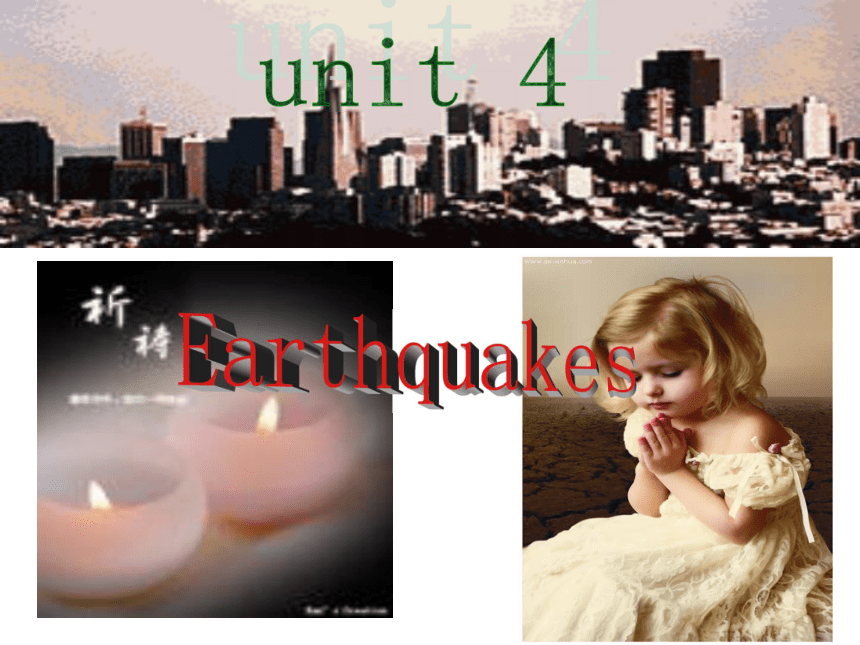 | |
| 格式 | zip | ||
| 文件大小 | 7.8MB | ||
| 资源类型 | 教案 | ||
| 版本资源 | 人教版(新课程标准) | ||
| 科目 | 英语 | ||
| 更新时间 | 2013-10-22 20:22:14 | ||
图片预览

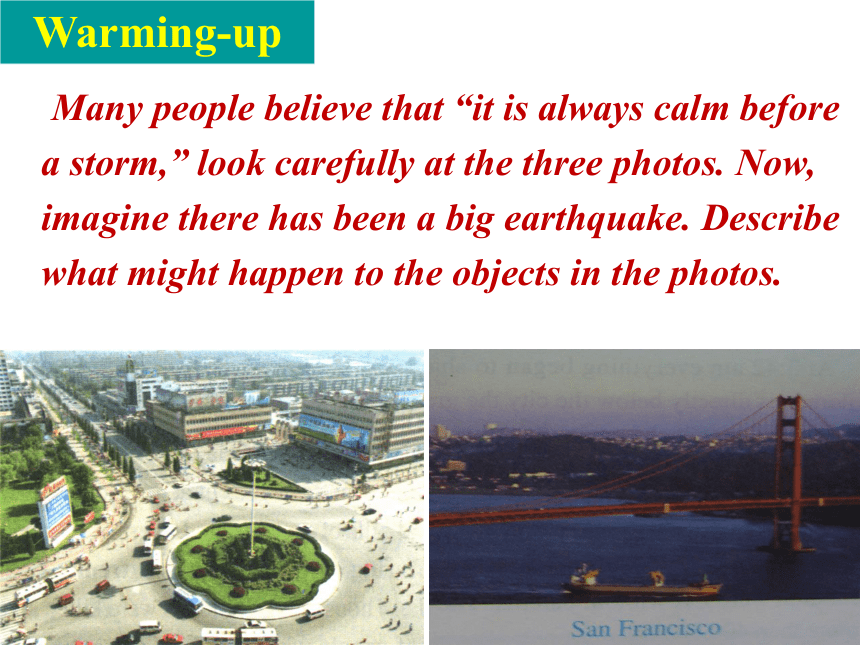
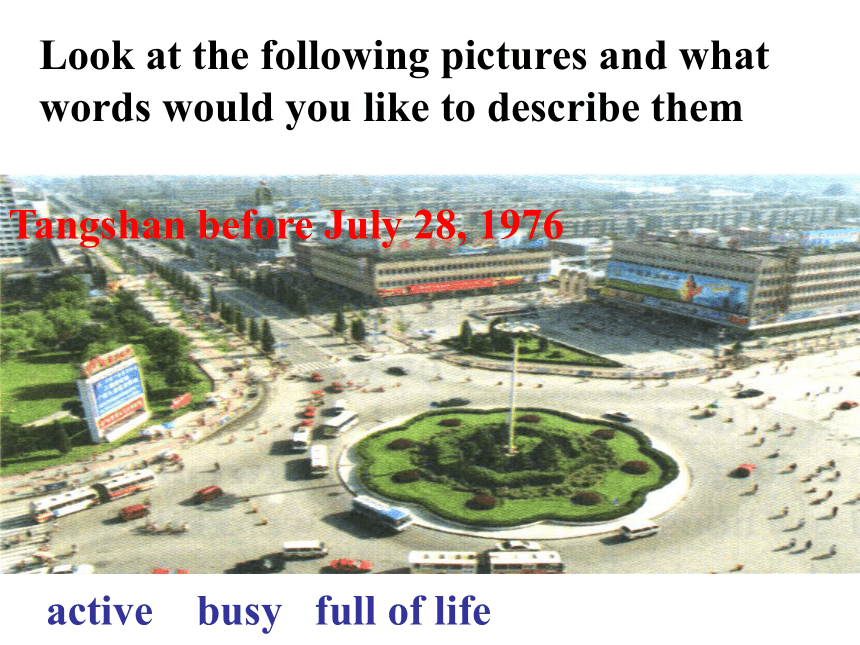
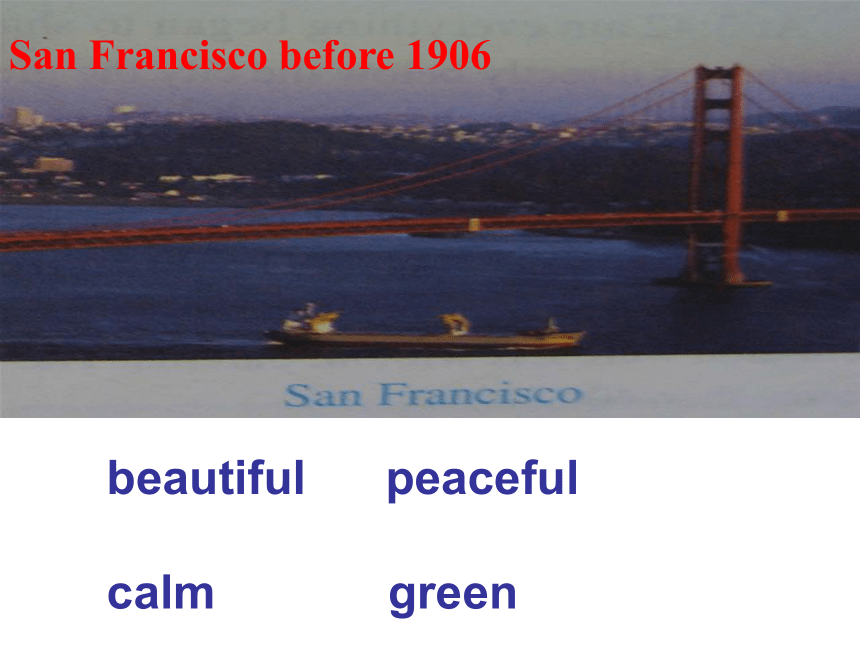
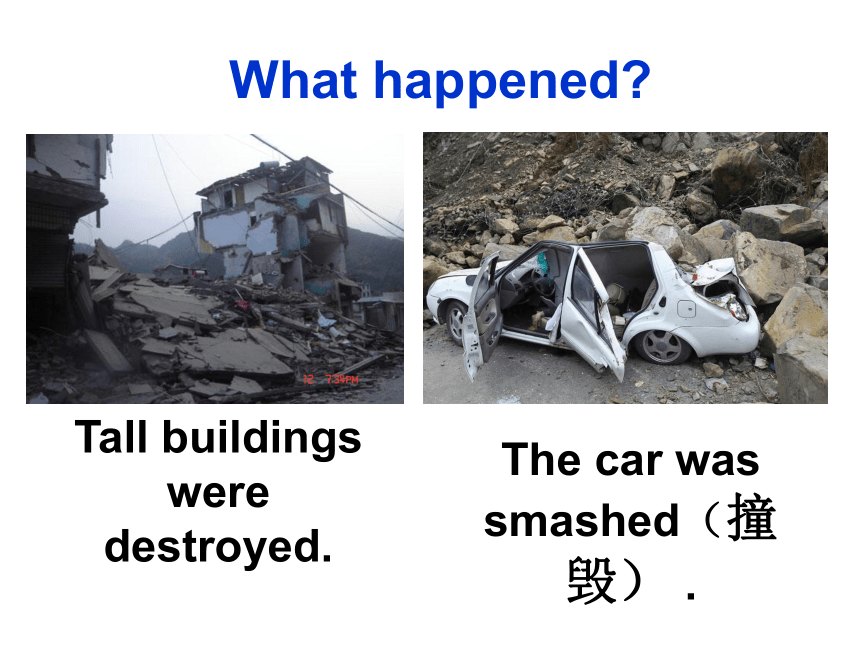
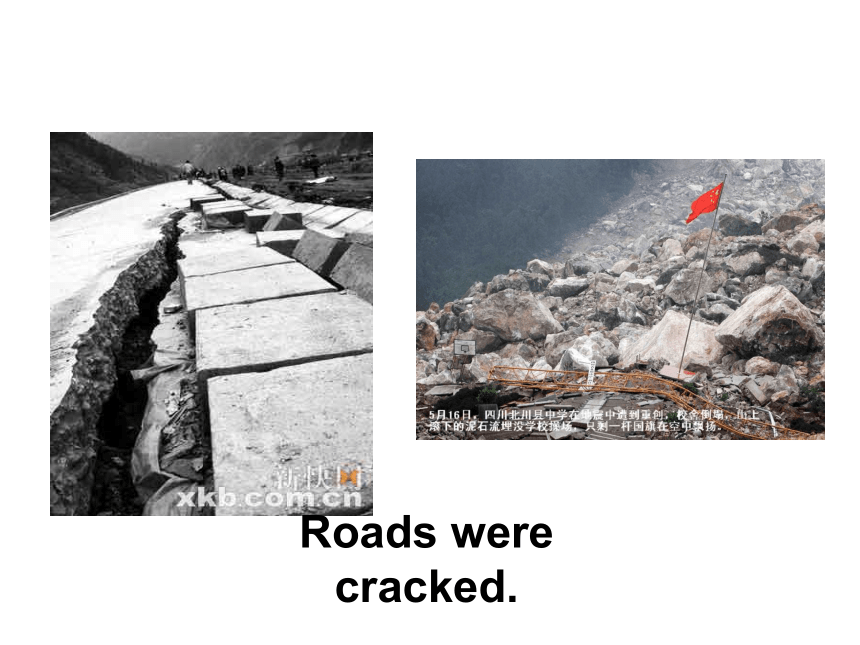
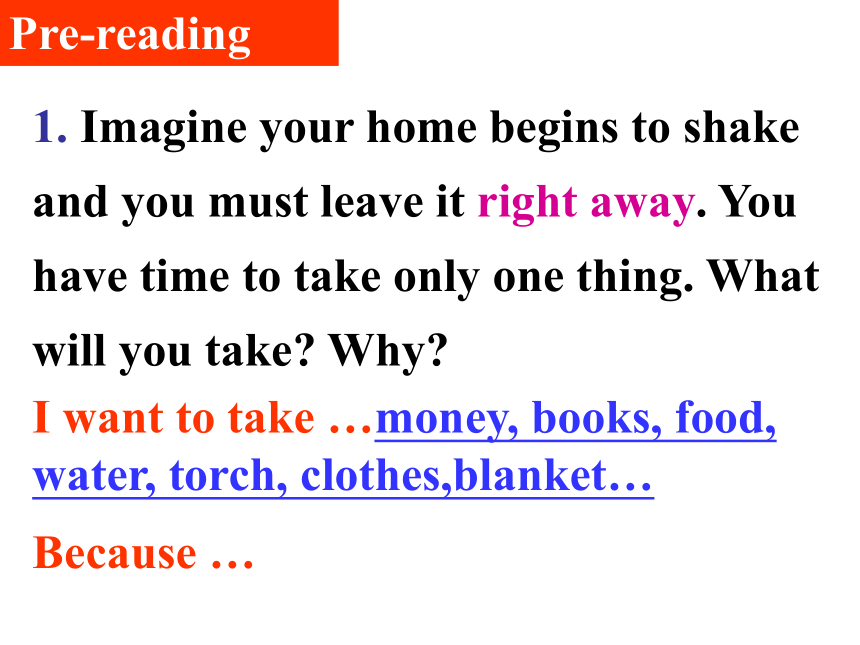
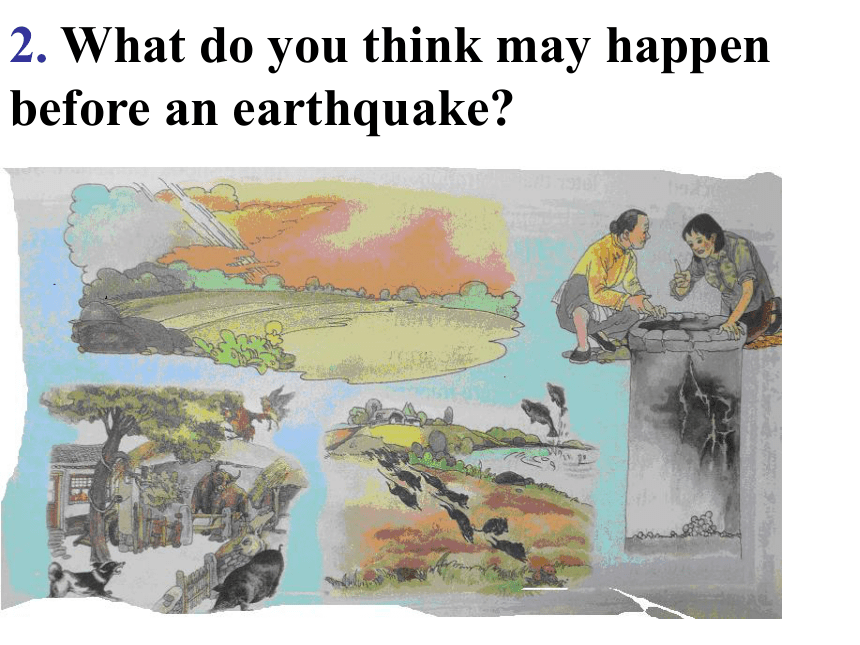
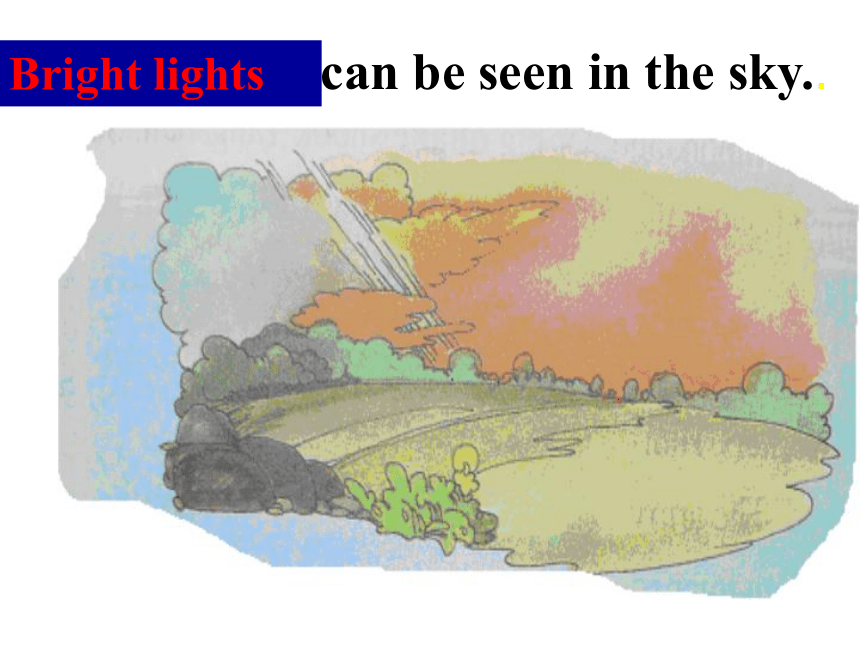
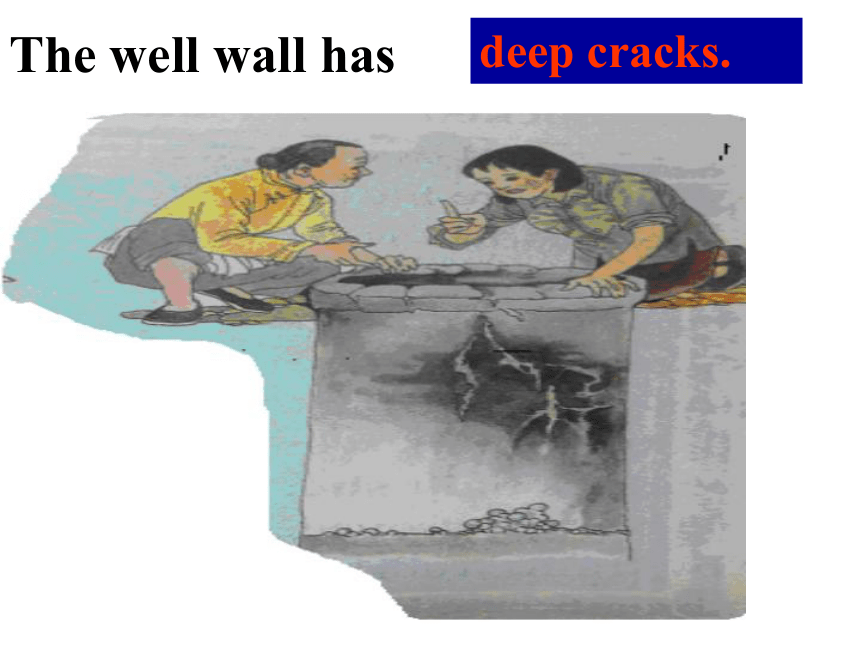
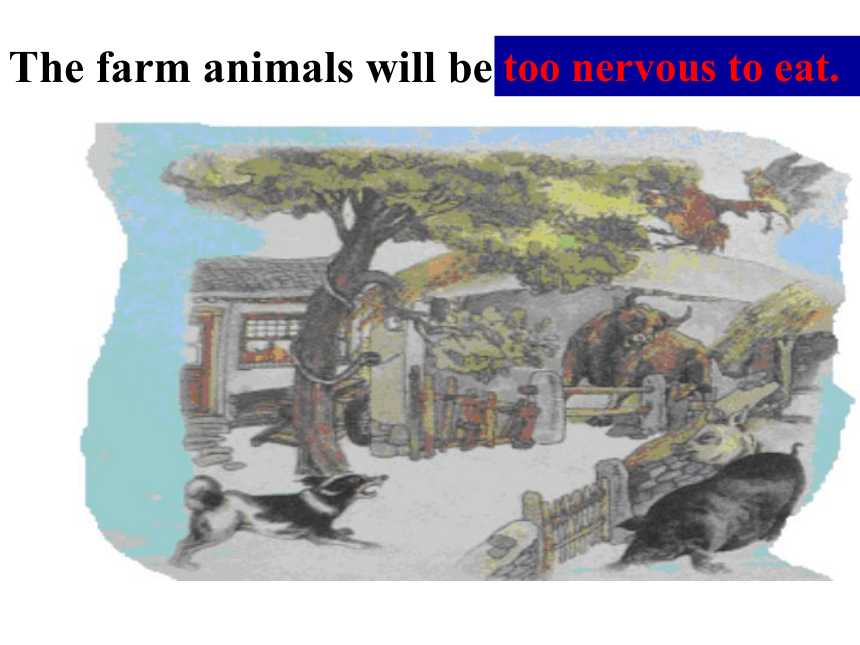
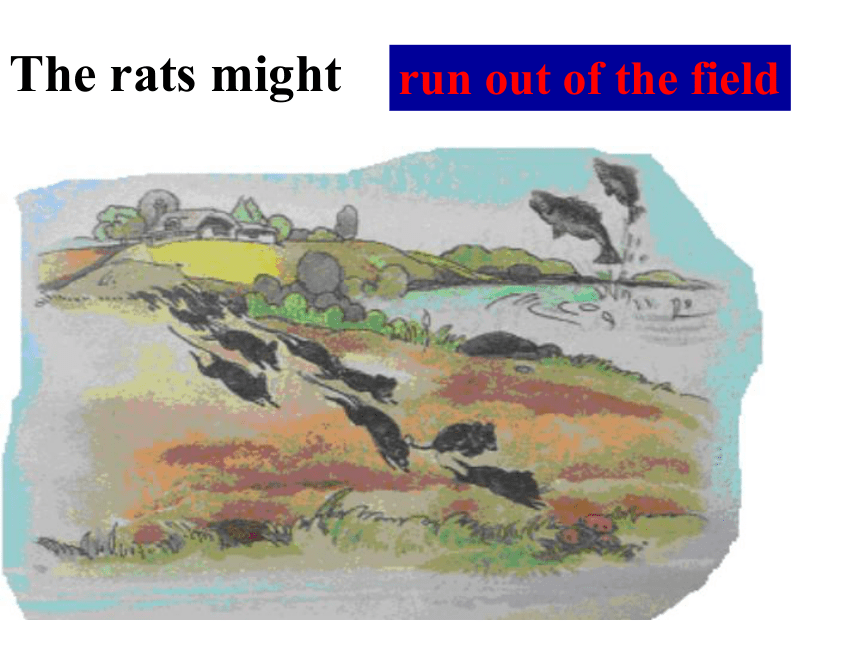
文档简介
课件162张PPT。unit 4Earthquakes Many people believe that “it is always calm before a storm,” look carefully at the three photos. Now, imagine there has been a big earthquake. Describe what might happen to the objects in the photos.Warming-upLook at the following pictures and what words would you like to describe themTangshan before July 28, 1976active busy full of lifebeautiful peaceful
calm greenSan Francisco before 1906What happened?Tall buildings were destroyed.The car was smashed(撞毁) .Roads were cracked.1. Imagine your home begins to shake and you must leave it right away. You have time to take only one thing. What will you take? Why?I want to take …money, books, food, water, torch, clothes,blanket… Because …Pre-reading2. What do you think may happen before an earthquake? can be seen in the sky..Bright lightsThe well wall hasdeep cracks.The farm animals will betoo nervous to eat. The rats mightrun out of the fieldThe fish willjump out of ponds.震前动物有先兆,密切监视最重要
骡马牛羊不进圈,老鼠成群往外跑
鸡飞上树猪乱拱,鸭不下水狗乱叫
冬眠老蛇早出洞,燕雀家鸽不回巢
兔子竖耳蹦又撞,游鱼惊慌水面跳
家家户户细观察,综合异常作预报关于地震前动物异常反应的谚语 THE EARTH DIDN'T SLEEPA NIGHT Reading The passage mainly talks about a/an
___________ that happened in
_________ in ______.SkimmingearthquakeTangshan1976Strange things were happening in the
countryside of northeast Hebei.Everything began to shake. It seemed
as if the world was at an end.Everywhere they looked nearly
everything was destroyed.All hope was not lost. Paragraph 1Paragraph 2&3Paragraph 4Strange things happened before the earthquake.The earthquake destroyed the city of Tangshan.The army came to help the rescue work.Main idea of the textPart 1welldeep cracks,
smelly gastoo nervous to eat
ran out , looking for places to hidebright lights
jumped out
sound of planes heard even no planesrose and fellThe one million people of the city, who thought little of these events, were asleep as usual that night.
Strange things happened before the earthquake.153:42 am11 kilometersPart2The earthquake destroyed the city of Tangshan. What damage did the
earthquake cause?
A huge crack that was 8 kilometers long and 30 meters wide cut across houses, roads and canals. The suffering of the people was extreme. The number of people who were killed or injured reached more than 400,000.All of the city’s hospitals ,75% of its factories and buildings and 90% of its homes were gone.Two dams and most of the bridges fell or were not safe for travelling.Railway tracks are now useless
pieces of steel.
chickens/pigs
Wells
Rescue workers/doctors
Water ,food,
electricityMore damage caused by the quakeIt seemed as if the world was at an end!!!diefilled with sandtrapped hard to getfinished1
2
3
4
Who went into the city?What did they do for the city?All hope was not lost.Part3help the rescue workersdig out the people who were trapped bury the deadbuild shelters for survivorsrescue workers, army, soldiers, doctors, ……The army came to help the rescue work.Tangshan’s new look
Faith, hope and love will make miracles.
Never give up, never give in, never say never!
Retell the story ____________ happened in Tang Shan. For a few days, water in the wells _____________. From the ______ of wells __________come out. Mice, chicken, pigs and even fish became ________. At 3:00 am, everything began to ______.It seemed that the world was _________. _________ of the nation ____ it. ___________cut across the city. The city lay _______. Strange thingsrose and fellcrackssmelly gasnervousshakeat an endOne-thirdfeltA huge crackin ruinsTwo-thirds of the people _____ or ___________. Then later that afternoon, another big quake ______ Tang Shan. People began to wonder ___________________________. But all hope ____________. _______ came to help those ________. Slowly, the city began to _____________.diedwere injuredshookhow long the disaster would lastwas not lostSoldiersbreathe againsurvivors1.Imagine your home begins to shake and you must leave it right away.
假设你的家开始晃动,你必须立刻离开。Shake(shook,shaken)
v.摇动, 摇, 颤抖, 震动
n.摇动, 摇, 颤抖, 震动翻译:服药前请摇动瓶子。 Please shake the bottle before taking the
medicine.Language points联想记忆:
shake hands with sb.
shake one’s head
shake sb by the hand=shake one’s hand
立刻;马上
right away= right now= at once
=immediately= in no time
We must begin the work right away.
2.What do you think will happen before an earthquake?do you think 插入语What do you think was the author's intention
in this passage? adv. 好; 令人满意地
She sings well. 她歌唱得很好。
n. 井; 水井
The old well in the village had a
wall around it . 村里的古井有井栏围绕。3. well 4. For three days the water in the village wells rose and fell, rose and fell.
三天来,村子的水井中的水位升升落落不停.
rise (rose,risen) vi.升起, 起身, 高耸, 增长, 上升
n.上升, 增加, 上涨, 发生, 出现
Everyone knows that the sun rises in the east.He rose from his chair when the door
bell rang.Prices continue to rise.
raise [reiz]( raised, raising)
vt. 抬高;举起;提高,增加;饲养,种植
raise a question
He raised a lot of chickens.他们坚决要求提高工资。They insisted on raising salaries.5. A smelly gas came out of the cracks.
发臭的气体从裂缝中冒出来。smelly adj.有臭味的
eg:The food was smelly.smell n./v (smelt/ smelled)They were all hungry and the food ______good.
I can ______something burning in the kitchen.
Please throw the _______fish away.
The house has a _______ of paint.
smeltsmellsmellysmell6. In the city,the water pipes in some buildings cracked and burst.
在城市里,有些建筑物里的水管
出现裂缝或者破裂.
crack v. (使)裂开 n. 裂缝
The windows was cracked but not broken. 窗玻璃裂了但没有碎。The ice cracked as I stepped onto it.
This cup has a crack in it.
这杯子有一道裂痕。burst(burst, burst): (使)爆裂;(使)爆炸;闯入eg. The balloon suddenly burst.
那气球突然爆裂了。
She burst into the door.
她突然闯进门。burst into+ n. =
burst out + doing…
突然…起来扩展:
burst into+n 突然….
burst into tears/laughter
burst into 闯进
burst out( 战争、火灾)突然爆发
burst out+v-ing :suddenly begin doing sth
burst out crying
burst out laughing
burst out singing
突然唱起来突然哭起来突然笑起来burst into the room 闯入房间
a burst of applause/anger/tears 一阵…..隔壁房间里突然爆发出一阵笑声。
There was ______ ________ ______ laughter in the next room.a burst ofthink little of = pay little attention to…
轻视,不在意
He thinks little of what his parents said.
另:think 的常见短语:
think highly/much of…:对…评价高
think about:考虑 think of:想到
think over:仔细考虑7. But the one million people of the city, thought little of ...8.It seemed that the world was at an end.
似乎世界末日来临 at an end 结束;终结
The war was at an end.区分: at the end of;by the end of; in the end.There is a big bookstore _____________ this road.
How many English words had you learned ________________ last term.
He will be a scientist _________.
My father will return home ___________ this year.at the end of by the end of in the end at the end ofas if 仿佛,好像
as if 在表语从句中相当于that
It seemed as if the meeting would
never end. 看起来会议没完没了。
It seemed as if the world was at an end!
= It seemed that the world was at an end!
as if 似乎, 好像 = as though
She spoke to me as if she knew me.
她和我说话的神情, 好像她早就认识我似的。
9.ruin用作名词, 构成的常见短语有:
be on the road to ruin 正在走向毁灭、
be the ruin of 使……破产、身体垮掉、
名誉扫地
be/lie in ruins 变成废墟
go to ruin = fall into ruin 衰落, 败落 如:
The company cannot pay its bills and is
on the road to ruin.
Drinking was the ruin of him.
He had let the farm go to ruin.分数的表示法 分子
分母
基数词序数词分子大于一,分母用复数.三分之一 one- third五分之三 three- fifths10. One-third of the nation felt it.1/2不能说a(one)second,而要说half。
1/4和3/4可以说a(one)fourth和three fourths, 但常用a quarter和three quarters表示。
分数修饰名词,在句子中作主语,谓语动词是用单数还是复数取决于名词,即与分数所修饰的名词保持一致。One third of the apple ____ rotted.
这个苹果中三分之一烂了。
One third of apples ____ rotted.
这些苹果中三分之一烂了。
hashave11. injure v. 损害,伤害,一般指由意外或事故而造成的伤害He fell off the bicycle and injured his arm.
She was serious injured in a road accident.
be badly/slightly injured 受了重/轻伤
the injured 受伤的人,伤者表示“受伤,伤害”的词:injure
wound
hurt主要是意外事故造成的伤害。用武器(尤其在战场上)造成的伤害,也可作名词,表 “伤口”。通常指肉体或精神上的伤害。My feelings were _____ when he didn’t ask me to the party. hurtThe soldiers were __________in the battle.wounded12. Everywhere they looked nearly everything was destroyed.人们无论朝哪里看,那里一切都几乎被毁坏了. everywhere=wherever =no matter where 在这里做连词用,引导状语从句.如: Everywhere he appeared, he was popular.无论他出现在哪里,他都是受欢的无论他去哪,他的狗都跟着他。Everywhere he goes,his dog follows him.Most of the old part of the city was destroyed by bombs during the war.
The accident seemed to have completely destroyed his confidence. destroy vt. 彻底破坏, 摧毁以致不可能修复,
也可指希望、计划等破灭。13.Tens of thousands of cows never give
milk again.
数以万计的奶牛再也不产奶了 tens of thousands of 数以万计的
hundreds of thousands of 数以十万计的
thousands of 数千计的
millions of 数百万计的
scores of 许许多多的
dozens of 许多,大量14. shock 震惊,打击,吃惊程度很大
be shocked by/at 对……感到吃惊,震惊
be shocked to do sth.做某事很吃惊
be shocked that 对……震惊
We were shocked by/at his sudden death.
n. 打击,震惊,休克
The shock of the failure in the exam made
her ill.15. rescue n.搭救; 解救
come/go to one’s rescue援救某人
They came to our rescue when we were in danger .
a rescue team 救援队
v.救出; 解救
rescue...from… 把…从…中解救出来 He rescued the boy from drowning.
他们把溺水的男孩救起来了16. trap
trap可以作 _____,意为: ___________。可以构成短语trap sb. into (doing) sth.,表示“使中计;使陷入圈套” 。也可以作名词, 意为: _____; _____。动词使陷入困境困境陷阱1. I knew perfectly well _____________ (这是一个陷阱).
2. By clever questioning, they ______________ (诱使他) making an agreement.it was a trap trapped him intoHe is trapped in the hole. [考点] last在此句中意为“持续,延续”。可单独使用,也可后接for +一段时间(for可以省略)。17. People began to wonder how long the disaster would last.[考例] The evening news comes on at seven o’clock and ______ only thirty minutes.
A. keeps B. continues
C. finishes D. lasts
[点拨] 根据句意“……只持续30分钟”,排除C; keep意为“维持,保持”时,后接形容词作表语,排除A; continue指继续做某事;last指某事持续了多长时间。18. All hope was not lost.
不是所有希望都破灭了。
★ all...not = not all...意为“并不都……”,是部分否定。
★当all, both及every的合成词与not 连用时,表示部分否定。
★完全否定要用no, never, nowhere, none, neither, nothing, nobody等。①不是所有的孩子都被留下了。
All the children are not left.=
Not all the children are left.
(= Only some of them left early.)
②他们俩不都是老师。
Both of them are not teachers.=
Not both of them are teachers.
(= One of them is not teacher.)
19. The army organized teams to dig out those who are trapped and to bury the dead.
军队组成救援队挖掘那些受困的人们并埋葬死者。
1) dig out 掘出;发现
他把狐狸从洞中掘出来了。
He dug the fox out of the hole. dig information out of books 从书本挖掘知识
dig out truth 寻求真理2) bury vt. (1)place (a dead body) in the ground埋葬
eg: He was buried with his wife.
(2)hide 掩埋 隐藏,
Our dog buries its bones in the garden.
(3)短语:
bury oneself in sth
埋头于某事物,专心致志于某事
be buried in one’s work/study/books
埋头工作、学习、读书20.To the north of the city,most of the 10 000
miners were rescued from the coal mines.
在城市的北部,一万矿工中的大多数从矿井中被救出。表方位介词in,to与on
in表示“在其中”,在境内;
to表示“向”的意思,在境外
on 表示与境界相接.Japan lies ____ the east of Asia.
Japan lies ____ the east of China.
Fujian lies ______the northeast of Guangdong.intoonA the army came
to help them.
B the quake
happened while
they were sleeping.
C they were nervous.
D dams and wells
were useless.
E they didn’t know what the strange events meant.1 The chickens didn’t eat because
2The people didn’t
worry because
3 Such a great number of people died because
4 Water was needed because
5 The people did not lose hope because1 Join the correct parts of the sentences.Comprehending2 Read the passage again and make a timeline.1 water in the village wells
rose and fell.2 well walls developed
deep cracks.3 a smelly gas came out of
the cracks.4 mice ran out of the fields.5 fish jumped out of their
bowls and ponds.1 bright lights appeared
in the sky.2 the sound of planes
could be heard
although there were
no planes.3 some water pipes burst.3 Writing a summary of a passage means looking for the main idea of each part and putting it down in a sentence. Look at each paragraph of the reading passage and write down its main idea._________________________________
_________________________________
_________________________________
2. _________________________________
_________________________________
3. _________________________________
_________________________________
4. _________________________________
_________________________________Before the earthquake strange things began to happen but no one paid attention to them.
The earthquake destroyed the city of Tangshan.
The people were very shocked at the destruction.
The army came to help the survivors, bringing hope for a new life.4 Explain in your own words what the writer means by the title “A night the earth didn’t sleep” again. In pairs, suggest another title for the text.“A night the earth didn’t sleep” is a poetic way of saying that an earthquake happened.Another title might be “Tangshan’s great challenge” or “How Tangshan’s citizens overcame the city’s greatest disaster”.4 Suppose one of the students were an reporter from CCTV and the other were a survivor from the Tangshan earthquake . Choose a paragraph and act out your interview.REPORTER: Good afternoon, Mr./Ms…
May I ask you some questions
SURVIVOR: Sure!
REPORTER: Did you notice anything strange before the earthquake.
SURVIVOR: There were some strange things….REPORTER: Good afternoon, Mr./Ms…
May I ask you some questions
SURVIVOR: Sure!
REPORTER: Did you notice anything strange before the earthquake.
SURVIVOR: There were some strange things, I didn’t see all of them.
Sample interviewREPORTER: What did you see?
SURVIVOR: I saw some cracks in pipes on some buildings but I didn’t worry too much about them.
REPORTER: Did you hear of other things?
SURVIVOR: Yes, some people saw cracks in the wells and a smelly gas coming out of them. Some of the animals behaved strangely too.
REPORTER: Thank you. You have been very helpful.
1. Find the correct word or expressions for each of the following meanings. uselessnationa great
number ofdirtDiscovering useful words andexpressionsright awaysteamat an endextremeshocktrackrescueruin2. Try to find as many words you have learned in the reading passage as possible to describe any earthquake you know about.Before:After:Feelings curious anxious surprise amazed puzzled confusedshocked horrified relieved worried scared angry distressed sad terrified frightened hopeless hopeful unbelievable encouragedDamage Before:After:cracks pipes burstgreat destruction
houses in ruins
roads destroyed
water, gas and electricity hard to get
people killed or injured
cracks cut across roads and canals
hills of rock became dirt
children lost parentsEventsBefore:After:animals behaved strangely
lights in sky
sound of planes
well water rose and fellruins 2. 2nd quake
3. army came After:Rescue
workcalm practical
hard-working selfless helpful brave courageous kind thoughtful prepared tireless understanding organised strong-willed determined3. Complete the passage with words from the text. It was a frightening night. The dam cracked and then ______ under the weight of the water. The water went all over the fields and _________ quite a few villages along the river. Some buildings were in ______ and some farmers were ________ at the top of their houses.burstdestroyedruinstrappedThe water filled the canals and the _____. Dead bodies and _______ animals were seen everywhere. People were ________, but they had to _____ the dead bodies for health reasons. It was a very sad time.wellsinjuredshockedbury4. Work in groups. Read some of the sentences and complete the others. Then choose the best to read to the class.◎ When the earthquake came, it was as if the world was at an end.
◎ When the houses fell down, it sounded as if _______________________. a mountain had blown up◎ When the dam broke, it looked as if the sea had arrived suddenly on our doorstep.
◎ When the bricks covered the ground, it was as if ___________________________.
◎ When the coal mines fell, the ground above looked as if it would crack.
◎ When the cows ran down the road, they looked as if ______________________
____________.stones were flowing like water they were driven by an
unseen hand◎ When the shock hit us, we felt as if we were going to die.
◎ When the nation turned to help us in our need, it seemed as if _____________
__________________________________ ____. all China was thinking of us and was coming to our aidDiscovering useful structuresThe Attributive Clause (1)
定语从句(1)Translate the proverbs into Chinese:1.He who doesn’t reach the Great Wall is not a true man.
2.He who laughs last laughs best.
3. All that ends well is well .不到长城非好汉。
谁笑到最后谁笑得最好。
结局好一切都好。As the saying goes(有句古话说)Think about the Attributive ClauseFootball is a game which/that is liked by most boys. 先行词
(antecedent)关系词
(relatives)定语从句
(Attributive Clause)The woman who lives next door is a teacher.
He has a friend whose father is a doctor.由关系词引导,修饰主语、宾语、表语的句子就叫做定语从句。
引导定语从句的关系词有:定语从句关系代词: who, whom
whose, which, that 关系副词: when, where , whyRelative pronounsRelative adverbs 指人或物, 在从句中做主语或宾语, 作宾语时可以省略。The house(that) I’m going to buy faces south.They’re talking about the man that made a speech yesterday. 指物作宾语指人作主语that 指人, 在从句中作主语或(宾语) 。He is the man (who/whom) I saw yesterday.Is he the man who want to see you?指人作主语指人作宾语who 指人, 在从句中作宾语, 可省略。Do you know the man (whom) we saw at the Beijing Hotel?The girl (whom ) I met just now is from America.作宾语作宾语指人指人whom 指物, 在句中作主语或宾语, 作宾语时可以省略。I’m not interested in the book which has just been published.I have read the newspaper (which) you bought for me.指物指物作宾语作主语which 指人或物,在从句中作定语。That’s the house whose windows face south.The girl whose father had given us a report got first.指物指人作定语作定语 whose 功能:相当于形容词,修饰名词或代词,
在句中作定语。
2. 位置:定语从句置于被修饰词之后。
3. 先行词:被定语从句修饰的词称为先行词Conclusion:4. 确定关系词的步骤:
1) 先找关系词,看先行词指的是什么;
2) 看关系词在从句中所充当的成分。 An attributive clause gives more information about someone or something referred to in the main clause. Look at the example below:
Workers built shelters for survivors whose homes had been destroyed.
Find the sentences with attributive clauses from the reading passage.But the one million people of the city,who thought little of these events, were asleep as usual that night. (para1)2. It was felt in Beijing, which is more than two hundred kilometers away. (para2)3.A huge crack that was eight kilometers long and thirty meters wide cut across houses, roads and canals. (para2)4.The number of people who were killed or injured reached more than 400,000. (para2)5.Then ,later that afternoon, another big quake which was almost as strong as the first one shook Tangshang. (para3)6.The army organized teams to dig out those who were trapped and to bury the dead. (para4)7.Workers built shelters for survivors whose homes had been destroyed. (para2)1.Here are my neighbours _______ home was destroyed by the earthquake.
2.The terrible shaking of the building woke up all the people_________ were asleep.
3.The next day people put up shelters in the open air made with anything _________they could find.
4.Several days later most of the buildings ___________had been damaged were repaired.whosewho / that which/ thatthat/省略2 Complete each sentence using that, which, who or whose. 5.This frightened boy________ mother was lost in the disaster is looking for her now.
6.We went to see our teacher________ husband lost his life in the earthquake.
7. “ Is this the young man________ saved several people trapped under buildings?”she asked.
8.A number of children ________parents had died in the quake were sent to live with families in our cities.
whose who / thatwhosewhose3. Play a game. Get into a group of four and each group makes up a short sentence. Then take turns to complete the sentence using the attributive clauses with that, which, who or whose.
Example :The boy bought a bicycle.
S1:The boy bought a bicycle that was stolen from his neighbour .
S2:The boy bought a bicycle which was newly repaired .
S3:The boy who is wearing a red jacket bought a bicycle.
S4:The boy whose glasses were broken bought a bicycle.
Repeat the game using the sentences:The girl was rescued from the well.
The girl who was dying was rescued from the well .
The girl whose father is a worker was rescued from the well.
The girl was rescued from the well which is 3meters deep. 2. The children buried eggs in the garden.
The children who are 8 buried eggs in the garden.
The children buried eggs which are big in the garden.
The children buried eggs in the garden which is small.3. The survivors were dug out by the soldiers.
The survivors who are happy were dug out by the soldiers.
The survivors were dug out by the soldiers who are from China.
The survivors were dug out by the soldiers whose name are unknown 4. The nation was shocked at the news.
The nation was shocked at the news which comes first .
The nation which is next to Japan was shocked at the news.
The nation was shocked at the news which seems bad. Suggested answers to Exercise 1 on page 64:1 It’s necessary for the people whose homes are in an earthquake area to prepare carefully before the earthquake.
2 Never buy a house which is not earthquake safe.
3 Make sure that all pipes are fixed to walls that are thick and strong.
4 It is important to have a house which has bolts underneath and no broken windows.5 Televisions, computers and lamps which are not tied or stuck to tables could cause an accident during an earthquake.
6 Anyone who stands close to windows will be hurt in an earthquake if the window glass breaks.
7 Those for whom this advice is written should read it carefully.Reading & speaking Using Language
1.What kind of letter is it?
2.who invited the student ? why?
Invitation.Office of the city government.
Because the student won the high school speaking competition about new Tangshan .Here is a letter of invitation. Read it carefully and answer the following questions. Who write the letter?Zhang Sha.3.What was the park built for?
4.When will the student speak to the park visitors? It was built to honour those who died in the earthquake and those who helped the survivors.On July 28 at 11:00 am.1. invitation n. 邀请invite v. a letter of invitation 一封邀请信2. give a speech 作报告/演讲 3. Office of the City Government
市政府办公室 Language points4. be pleased to do sth
愿意/高兴/乐于做某事
5. the speaking competition
演讲比赛= be glad / happy to doI am pleased to take part in your party.6. judge n. 评委、裁判员、法官
He was a poor judge of man.
他看人的能力很差。
The prisoner was taken to the judge.
他被带到了法官那儿。
v. 断定、判断、判决
A blind man cannot judge colors.
盲人不能判断颜色。
翻译: 不要以貌取人。
Don’t judge a man by his appearance.Judge… by… 根据…来判 Judging from … 从…来看 从他的话来判断,他是很高兴被邀请的。
Judging from what he said, he was pleased to be invited.7. be proud of sb 以..而感自豪
I am proud of you.
He is proud of his father.
8. honour = in honour of
n./v.荣誉、尊敬、敬意、纪念
honour sb (for sth)
We should show honour to our parents.
我们应该尊敬父母。
这纪念碑为是纪念在战争中死去的战士而立的。
The monument was built in honour of the dead in the war.
Congratulations 祝贺Open a new park 开放一个新公园As you know 如你所知 invite sb to do sth 邀请某人做某事I will invite my friends to my birthday party.On that special day在那特殊的日子 Congratulations, you have a healthy
baby boy. 恭喜,你生了个健康的男孩。disaster-hit areas 受灾区thank those who worked hard to build a new city; (For example: they built new homes and offices in only seven years. The UN honoured them for their quick work.)thank the visitors for listening to your speech.2 Now in pairs Prepare a short speech, in which you should:thank those who worked hard to rescue survivors and list some of the things the workers did to help them;I would like to express my thanks to … who ….; Here, I wish to express my thanks to the great efforts …
I’d also like to thank …
No words are strong enough to express our …; It was terrible when …
It seemed as if ….
I remember … I felt …
Not long after that … Luckily, … One possible speech:
Good morning, everyone. My name is Wang Wei. First of all I would like to express my thanks to Mr Zhang Sha and the city of Tangshan who are letting me talk to you. I would also like to thank you all for coming on this special occasion. Here, I wish to express my thanks to the workers who helped during that terrible disaster. Many thousands worked hard to save others and to make them feel more comfortable. I’d also like to thank the soldiers who worked day after day without rest to help those who needed it.
Now we see around us a new city. No words are strong enough to express my pride at this. How lucky I feel to live in such a place and to see this beautiful new park which honors the survivors of the quake and those who saved them. We are indeed the “Brave City of China”. Thank you.3 Look at the stamps of new Tangshan and discuss what had to be done to rebuild a city after an earthquake.Sample discussion:
S1: Let’s look at the stamps. They seem to show new houses, a new city center, new factories, schools, hospitals and a new port.
S2: That shows how strong the earthquake must have been and how much damage there was if so much of Tangshan had to be replaced. S1: Yes, indeed. The people of Tangshan must have had a terrible time while the earthquake was happening.
S2: Yes. I wonder how long they had to live in temporary accommodation?
S1: Well, the United Nations praised the people of Tangshan for rebuilding their city so quickly. It only took seven years.S2: There must have been so much to do: clear the site of ruined buildings; design new ones that would withstand another earthquake; bring in new building materials, bring in the workers to build the factories, homes etc. Such a lot of work!S1: Yes, and meanwhile the people had to live in tents. They must have worried a lot about how they would pay for food and clothes. Poor things!
S2: Indeed, we owe them a lot. And they made everyone aware of the dangers of earthquakes and how to prepare for another one. They themselves were survivors in more ways than one!Listening 1 How would you feel if your home was suddenly destroyed without warning? In pairs make a list of useful adjectives to express your feelings. 2 Listen to the tape and then tell
whether they are true or false.1. The man was sleeping downstairs when the earthquake happened.
2. Many huge buildings were shaking –bricks were falling.FT3. A lot of people were buried under
the ruins.
4. Some cows were killed in the fire.
5. He felt safer because he go away
easily.TFF1. When did the earthquake begin?
2. What did the speaker do after he woke up? Listen to the tape again and in
groups discuss these questions. Around 5 o’clock in the morning.He rushed outside as soon as
he woke up. 3. What did he see and hear outside?When he got outside he thought the world had come to an end. He heard people crying and shouting. He saw people running everywhere and bricks falling down from buildings. There were big fires too. 4. What happened to the man next to him?
5. How did he get away from the city?
6. Which of your adjectives describe the man’s feelings most closely?He was killed by bricks falling from a nearby building. He got away from the city by boat. Very shocked, devastated. 1 I asked a man standing nex(t) to me wha(t) happened.
2 Some of them ha(d) broken their legs and others were climbing
upon each other to get out.4 Read the sentences below and pay
attention to liaison and incomplete
explosion.R: What was the first thing you
remember?Listening textA report is asking a man to describe his experience in the San Francisco earthquake of 1906.
R=reporter M=manM: Oh, my goodness. It was about 5 o’clock in the morning. I remember, I woke up when I was thrown out of the bed. When I tried to walk, the floor shook so that I fell. I felt terrified and rushed downstairs.
R: What did you see outside?
M: Oh, I saw things I never want to see again. It seemed as if the end of the world came. People were crying, shouting and running everywhere. bricks were falling down from some buildings while big ones were shaking… Lots of people were getting buried under bricks. There were great fires around us. It was terrible!
R: Did you realize what was happening?
M: No. I asked a man standing next to me what happened. Before he could answer, some bricks fell on him and he was killed.
R: That sounds frightening. Did you know where to find a safer place?
M: Oh, no. Luckily I met a man who knew the way to a boat.
R: So…you got away easily?M: No, we didn’t. It was difficult because the streets had deep cracks. As we were carefully picking our way, some frightened cows rushed up Market Street and dropped into one of them. I’ll never forget the noise they made. Some of them had broken their legs and others were climbing upon each other to get out. Horrible!R: How did you feel once you’d left the city?
M: Umm. I felt safer because we were being cared for. The soldiers saved us. They brought us water and food. Thanks to them many of us are still alive!Reading and writing
You are going to write an article for a
newspaper about a special event that
happened in your hometown. Before
you start, you should write an outline.
It will help you organize your ideas.
A newspaper outline usually includes:
a headline, a list of main ideas and a list
of important details. An interesting title that tells the reader what your topic is. HeadlineMain ideasDetailsDo you know what an outline is?outlineNow write your outline. Before you write it, ask yourself these questions: What happened? When did it happen? Where? Who took part? Why? Sample China leads world in traffic deathExperts say that road traffic accidents are on the rise and China ranks first in the world in traffic death tolls. Worldwide Statistics show that the global traffic accident death toll amounted to 500, 000 in 2003, with the largest share, 104, 000
reported in China, followed by India with 86, 000, the U.S. with 40,000, and Russia with 26, 000, said Duan Liren, former deputy director of the Beijing Traffic Management Bureau. Road accidents are the seventh leading killer in China. Summing Up
Write?down?what?you?have?learned?about?
earthquakes.
We have learned basic knowledge about earthquakes, how to protect oneself and help others in an earthquake.
From?this?unit?you?have?also?learned
useful?verbs: shake, rise, crack, burst, ruin,
injure,?destroy,?shock,?rescue,?organize,?bury,?judge,?honor,?prepare
useful?nouns: shake,?well,?rise,?crack,?pond,?pipe,?burst,
canal,?steam,?dirt,?ruin,?survivor,?brick,?dam,?steel,?shock,?quake,?electricity,?disaster,?
army,?coal,?mine,?shelter,?percent,?speech,?
judge,?honor,?Europe
other?expressions: right?away,?at?an?end,?dig?out,?a (great) number?of,?give?out,?thousands?of
a new?grammar?item: the?Attributive?Clause?introduced?by?which,?that,?who,?whom?and?whose
Reading For FunA?man?who?fears?suffering?is?already?from?
what?he?fears.害怕受苦的人已经在为害怕而受苦了。Neither?the?wise?man?nor?a?brave?man?
lies down?on?the?tracks?of?history?to?wait
for the?train?of?the?future?to?run over?him.? 智者与勇夫都不会躺倒在历史的轨道上,等待未来的列车在身上辗过。
-德怀特﹒E ﹒艾森豪威尔 Using words and expressions 1 choose the words and expressions from the box to complete the passage below. Change the form if necessary. destroy trap disaster a great number of
as usual pipe quake March 27,1964 was a holiday in Alaska, so most people were at home, and everything was going on ______. Suddenly, there was a sound thunder. Next, people’s house began to shake. Buildings cracks and water ______ burst. In the town of Anchorage, the main street went up into the air ten feet, holes opened in the ground, and buildings fell down. people were shocked by the unexpected _______. Some ran up and down the street while others who _______ in the buildings, were looking out of their windows for help.
The earthquake that hit Alaska was one of the strongest _______ in North America. The earthquake ______many towns and ____________ people were killed. 2 Translate the following sentences into English using the words and the phrase in brackets.
1.?裁判把奖金颁给赢得比赛的自行车选手,并向他祝贺。(judge; congratulation; cyclist)
The judge gave a prize and his congratulations to the cyclist who won the competition.
2. 那本书的标题是:“葬身海底的船只”。(title; bury; bottom)
?The title of that book is The Ship Buried at the Bottom of the Sea.
3.?被困在煤矿里两天的矿工们最后得到了营救。(mine; miner; rescue)
The miners who had been trapped in the mine for two days were finally rescued.4.?记者意识到女孩很害怕,而且尽力地回避问题。(reporter; frightened)
The reporter realized that the girl who was so frightened was trying to avoid the question.
5.?大火摧毁了离这儿四个街区的两个商店。(destroy; block)
The fire destroyed two shops which are about four blocks from here.
6.?气球突然爆炸,我们大吃一惊。(burst; shock)
The balloon burst suddenly and we were shocked by it.
7.?我无法表达我现在的感觉。(express)
I can’t express how I feel/ I am feeling
at the moment.
8. 他拒绝谈起那场灾难带给他的痛苦。(suffering; disaster)
He refused to talk about the sufferings
he had during the disaster.
9. 每天早晨起床,他都会快速浏览一下报纸上的新闻标题。(wake up; headline)
When he wakes up every morning, he will read the headlines in the newspaper very quickly.
3 Match the phrases on the left to the words on the right. Then use them to make sentences.
1. find out the answer You can find out the answer if you think more.
2. hand out homework Tom handed out our homework to us.
3. try out ideas Why not try out your ideas by doing experiments?
4. take out the rubbish
Mum takes out the rubbish every morning.5. keep out the cold
Please close the door and windows to keep
out the cold.
6. put out the fire
Luckily, the firemen arrived timely and put
out the fire.
7. work out an outline
Before you write a passage, you should work
out an outline first.
8. dig out potatoes
The farmers are busy digging out potatoes
now. Thank you!
calm greenSan Francisco before 1906What happened?Tall buildings were destroyed.The car was smashed(撞毁) .Roads were cracked.1. Imagine your home begins to shake and you must leave it right away. You have time to take only one thing. What will you take? Why?I want to take …money, books, food, water, torch, clothes,blanket… Because …Pre-reading2. What do you think may happen before an earthquake? can be seen in the sky..Bright lightsThe well wall hasdeep cracks.The farm animals will betoo nervous to eat. The rats mightrun out of the fieldThe fish willjump out of ponds.震前动物有先兆,密切监视最重要
骡马牛羊不进圈,老鼠成群往外跑
鸡飞上树猪乱拱,鸭不下水狗乱叫
冬眠老蛇早出洞,燕雀家鸽不回巢
兔子竖耳蹦又撞,游鱼惊慌水面跳
家家户户细观察,综合异常作预报关于地震前动物异常反应的谚语 THE EARTH DIDN'T SLEEPA NIGHT Reading The passage mainly talks about a/an
___________ that happened in
_________ in ______.SkimmingearthquakeTangshan1976Strange things were happening in the
countryside of northeast Hebei.Everything began to shake. It seemed
as if the world was at an end.Everywhere they looked nearly
everything was destroyed.All hope was not lost. Paragraph 1Paragraph 2&3Paragraph 4Strange things happened before the earthquake.The earthquake destroyed the city of Tangshan.The army came to help the rescue work.Main idea of the textPart 1welldeep cracks,
smelly gastoo nervous to eat
ran out , looking for places to hidebright lights
jumped out
sound of planes heard even no planesrose and fellThe one million people of the city, who thought little of these events, were asleep as usual that night.
Strange things happened before the earthquake.153:42 am11 kilometersPart2The earthquake destroyed the city of Tangshan. What damage did the
earthquake cause?
A huge crack that was 8 kilometers long and 30 meters wide cut across houses, roads and canals. The suffering of the people was extreme. The number of people who were killed or injured reached more than 400,000.All of the city’s hospitals ,75% of its factories and buildings and 90% of its homes were gone.Two dams and most of the bridges fell or were not safe for travelling.Railway tracks are now useless
pieces of steel.
chickens/pigs
Wells
Rescue workers/doctors
Water ,food,
electricityMore damage caused by the quakeIt seemed as if the world was at an end!!!diefilled with sandtrapped hard to getfinished1
2
3
4
Who went into the city?What did they do for the city?All hope was not lost.Part3help the rescue workersdig out the people who were trapped bury the deadbuild shelters for survivorsrescue workers, army, soldiers, doctors, ……The army came to help the rescue work.Tangshan’s new look
Faith, hope and love will make miracles.
Never give up, never give in, never say never!
Retell the story ____________ happened in Tang Shan. For a few days, water in the wells _____________. From the ______ of wells __________come out. Mice, chicken, pigs and even fish became ________. At 3:00 am, everything began to ______.It seemed that the world was _________. _________ of the nation ____ it. ___________cut across the city. The city lay _______. Strange thingsrose and fellcrackssmelly gasnervousshakeat an endOne-thirdfeltA huge crackin ruinsTwo-thirds of the people _____ or ___________. Then later that afternoon, another big quake ______ Tang Shan. People began to wonder ___________________________. But all hope ____________. _______ came to help those ________. Slowly, the city began to _____________.diedwere injuredshookhow long the disaster would lastwas not lostSoldiersbreathe againsurvivors1.Imagine your home begins to shake and you must leave it right away.
假设你的家开始晃动,你必须立刻离开。Shake(shook,shaken)
v.摇动, 摇, 颤抖, 震动
n.摇动, 摇, 颤抖, 震动翻译:服药前请摇动瓶子。 Please shake the bottle before taking the
medicine.Language points联想记忆:
shake hands with sb.
shake one’s head
shake sb by the hand=shake one’s hand
立刻;马上
right away= right now= at once
=immediately= in no time
We must begin the work right away.
2.What do you think will happen before an earthquake?do you think 插入语What do you think was the author's intention
in this passage? adv. 好; 令人满意地
She sings well. 她歌唱得很好。
n. 井; 水井
The old well in the village had a
wall around it . 村里的古井有井栏围绕。3. well 4. For three days the water in the village wells rose and fell, rose and fell.
三天来,村子的水井中的水位升升落落不停.
rise (rose,risen) vi.升起, 起身, 高耸, 增长, 上升
n.上升, 增加, 上涨, 发生, 出现
Everyone knows that the sun rises in the east.He rose from his chair when the door
bell rang.Prices continue to rise.
raise [reiz]( raised, raising)
vt. 抬高;举起;提高,增加;饲养,种植
raise a question
He raised a lot of chickens.他们坚决要求提高工资。They insisted on raising salaries.5. A smelly gas came out of the cracks.
发臭的气体从裂缝中冒出来。smelly adj.有臭味的
eg:The food was smelly.smell n./v (smelt/ smelled)They were all hungry and the food ______good.
I can ______something burning in the kitchen.
Please throw the _______fish away.
The house has a _______ of paint.
smeltsmellsmellysmell6. In the city,the water pipes in some buildings cracked and burst.
在城市里,有些建筑物里的水管
出现裂缝或者破裂.
crack v. (使)裂开 n. 裂缝
The windows was cracked but not broken. 窗玻璃裂了但没有碎。The ice cracked as I stepped onto it.
This cup has a crack in it.
这杯子有一道裂痕。burst(burst, burst): (使)爆裂;(使)爆炸;闯入eg. The balloon suddenly burst.
那气球突然爆裂了。
She burst into the door.
她突然闯进门。burst into+ n. =
burst out + doing…
突然…起来扩展:
burst into+n 突然….
burst into tears/laughter
burst into 闯进
burst out( 战争、火灾)突然爆发
burst out+v-ing :suddenly begin doing sth
burst out crying
burst out laughing
burst out singing
突然唱起来突然哭起来突然笑起来burst into the room 闯入房间
a burst of applause/anger/tears 一阵…..隔壁房间里突然爆发出一阵笑声。
There was ______ ________ ______ laughter in the next room.a burst ofthink little of = pay little attention to…
轻视,不在意
He thinks little of what his parents said.
另:think 的常见短语:
think highly/much of…:对…评价高
think about:考虑 think of:想到
think over:仔细考虑7. But the one million people of the city, thought little of ...8.It seemed that the world was at an end.
似乎世界末日来临 at an end 结束;终结
The war was at an end.区分: at the end of;by the end of; in the end.There is a big bookstore _____________ this road.
How many English words had you learned ________________ last term.
He will be a scientist _________.
My father will return home ___________ this year.at the end of by the end of in the end at the end ofas if 仿佛,好像
as if 在表语从句中相当于that
It seemed as if the meeting would
never end. 看起来会议没完没了。
It seemed as if the world was at an end!
= It seemed that the world was at an end!
as if 似乎, 好像 = as though
She spoke to me as if she knew me.
她和我说话的神情, 好像她早就认识我似的。
9.ruin用作名词, 构成的常见短语有:
be on the road to ruin 正在走向毁灭、
be the ruin of 使……破产、身体垮掉、
名誉扫地
be/lie in ruins 变成废墟
go to ruin = fall into ruin 衰落, 败落 如:
The company cannot pay its bills and is
on the road to ruin.
Drinking was the ruin of him.
He had let the farm go to ruin.分数的表示法 分子
分母
基数词序数词分子大于一,分母用复数.三分之一 one- third五分之三 three- fifths10. One-third of the nation felt it.1/2不能说a(one)second,而要说half。
1/4和3/4可以说a(one)fourth和three fourths, 但常用a quarter和three quarters表示。
分数修饰名词,在句子中作主语,谓语动词是用单数还是复数取决于名词,即与分数所修饰的名词保持一致。One third of the apple ____ rotted.
这个苹果中三分之一烂了。
One third of apples ____ rotted.
这些苹果中三分之一烂了。
hashave11. injure v. 损害,伤害,一般指由意外或事故而造成的伤害He fell off the bicycle and injured his arm.
She was serious injured in a road accident.
be badly/slightly injured 受了重/轻伤
the injured 受伤的人,伤者表示“受伤,伤害”的词:injure
wound
hurt主要是意外事故造成的伤害。用武器(尤其在战场上)造成的伤害,也可作名词,表 “伤口”。通常指肉体或精神上的伤害。My feelings were _____ when he didn’t ask me to the party. hurtThe soldiers were __________in the battle.wounded12. Everywhere they looked nearly everything was destroyed.人们无论朝哪里看,那里一切都几乎被毁坏了. everywhere=wherever =no matter where 在这里做连词用,引导状语从句.如: Everywhere he appeared, he was popular.无论他出现在哪里,他都是受欢的无论他去哪,他的狗都跟着他。Everywhere he goes,his dog follows him.Most of the old part of the city was destroyed by bombs during the war.
The accident seemed to have completely destroyed his confidence. destroy vt. 彻底破坏, 摧毁以致不可能修复,
也可指希望、计划等破灭。13.Tens of thousands of cows never give
milk again.
数以万计的奶牛再也不产奶了 tens of thousands of 数以万计的
hundreds of thousands of 数以十万计的
thousands of 数千计的
millions of 数百万计的
scores of 许许多多的
dozens of 许多,大量14. shock 震惊,打击,吃惊程度很大
be shocked by/at 对……感到吃惊,震惊
be shocked to do sth.做某事很吃惊
be shocked that 对……震惊
We were shocked by/at his sudden death.
n. 打击,震惊,休克
The shock of the failure in the exam made
her ill.15. rescue n.搭救; 解救
come/go to one’s rescue援救某人
They came to our rescue when we were in danger .
a rescue team 救援队
v.救出; 解救
rescue...from… 把…从…中解救出来 He rescued the boy from drowning.
他们把溺水的男孩救起来了16. trap
trap可以作 _____,意为: ___________。可以构成短语trap sb. into (doing) sth.,表示“使中计;使陷入圈套” 。也可以作名词, 意为: _____; _____。动词使陷入困境困境陷阱1. I knew perfectly well _____________ (这是一个陷阱).
2. By clever questioning, they ______________ (诱使他) making an agreement.it was a trap trapped him intoHe is trapped in the hole. [考点] last在此句中意为“持续,延续”。可单独使用,也可后接for +一段时间(for可以省略)。17. People began to wonder how long the disaster would last.[考例] The evening news comes on at seven o’clock and ______ only thirty minutes.
A. keeps B. continues
C. finishes D. lasts
[点拨] 根据句意“……只持续30分钟”,排除C; keep意为“维持,保持”时,后接形容词作表语,排除A; continue指继续做某事;last指某事持续了多长时间。18. All hope was not lost.
不是所有希望都破灭了。
★ all...not = not all...意为“并不都……”,是部分否定。
★当all, both及every的合成词与not 连用时,表示部分否定。
★完全否定要用no, never, nowhere, none, neither, nothing, nobody等。①不是所有的孩子都被留下了。
All the children are not left.=
Not all the children are left.
(= Only some of them left early.)
②他们俩不都是老师。
Both of them are not teachers.=
Not both of them are teachers.
(= One of them is not teacher.)
19. The army organized teams to dig out those who are trapped and to bury the dead.
军队组成救援队挖掘那些受困的人们并埋葬死者。
1) dig out 掘出;发现
他把狐狸从洞中掘出来了。
He dug the fox out of the hole. dig information out of books 从书本挖掘知识
dig out truth 寻求真理2) bury vt. (1)place (a dead body) in the ground埋葬
eg: He was buried with his wife.
(2)hide 掩埋 隐藏,
Our dog buries its bones in the garden.
(3)短语:
bury oneself in sth
埋头于某事物,专心致志于某事
be buried in one’s work/study/books
埋头工作、学习、读书20.To the north of the city,most of the 10 000
miners were rescued from the coal mines.
在城市的北部,一万矿工中的大多数从矿井中被救出。表方位介词in,to与on
in表示“在其中”,在境内;
to表示“向”的意思,在境外
on 表示与境界相接.Japan lies ____ the east of Asia.
Japan lies ____ the east of China.
Fujian lies ______the northeast of Guangdong.intoonA the army came
to help them.
B the quake
happened while
they were sleeping.
C they were nervous.
D dams and wells
were useless.
E they didn’t know what the strange events meant.1 The chickens didn’t eat because
2The people didn’t
worry because
3 Such a great number of people died because
4 Water was needed because
5 The people did not lose hope because1 Join the correct parts of the sentences.Comprehending2 Read the passage again and make a timeline.1 water in the village wells
rose and fell.2 well walls developed
deep cracks.3 a smelly gas came out of
the cracks.4 mice ran out of the fields.5 fish jumped out of their
bowls and ponds.1 bright lights appeared
in the sky.2 the sound of planes
could be heard
although there were
no planes.3 some water pipes burst.3 Writing a summary of a passage means looking for the main idea of each part and putting it down in a sentence. Look at each paragraph of the reading passage and write down its main idea._________________________________
_________________________________
_________________________________
2. _________________________________
_________________________________
3. _________________________________
_________________________________
4. _________________________________
_________________________________Before the earthquake strange things began to happen but no one paid attention to them.
The earthquake destroyed the city of Tangshan.
The people were very shocked at the destruction.
The army came to help the survivors, bringing hope for a new life.4 Explain in your own words what the writer means by the title “A night the earth didn’t sleep” again. In pairs, suggest another title for the text.“A night the earth didn’t sleep” is a poetic way of saying that an earthquake happened.Another title might be “Tangshan’s great challenge” or “How Tangshan’s citizens overcame the city’s greatest disaster”.4 Suppose one of the students were an reporter from CCTV and the other were a survivor from the Tangshan earthquake . Choose a paragraph and act out your interview.REPORTER: Good afternoon, Mr./Ms…
May I ask you some questions
SURVIVOR: Sure!
REPORTER: Did you notice anything strange before the earthquake.
SURVIVOR: There were some strange things….REPORTER: Good afternoon, Mr./Ms…
May I ask you some questions
SURVIVOR: Sure!
REPORTER: Did you notice anything strange before the earthquake.
SURVIVOR: There were some strange things, I didn’t see all of them.
Sample interviewREPORTER: What did you see?
SURVIVOR: I saw some cracks in pipes on some buildings but I didn’t worry too much about them.
REPORTER: Did you hear of other things?
SURVIVOR: Yes, some people saw cracks in the wells and a smelly gas coming out of them. Some of the animals behaved strangely too.
REPORTER: Thank you. You have been very helpful.
1. Find the correct word or expressions for each of the following meanings. uselessnationa great
number ofdirtDiscovering useful words andexpressionsright awaysteamat an endextremeshocktrackrescueruin2. Try to find as many words you have learned in the reading passage as possible to describe any earthquake you know about.Before:After:Feelings curious anxious surprise amazed puzzled confusedshocked horrified relieved worried scared angry distressed sad terrified frightened hopeless hopeful unbelievable encouragedDamage Before:After:cracks pipes burstgreat destruction
houses in ruins
roads destroyed
water, gas and electricity hard to get
people killed or injured
cracks cut across roads and canals
hills of rock became dirt
children lost parentsEventsBefore:After:animals behaved strangely
lights in sky
sound of planes
well water rose and fellruins 2. 2nd quake
3. army came After:Rescue
workcalm practical
hard-working selfless helpful brave courageous kind thoughtful prepared tireless understanding organised strong-willed determined3. Complete the passage with words from the text. It was a frightening night. The dam cracked and then ______ under the weight of the water. The water went all over the fields and _________ quite a few villages along the river. Some buildings were in ______ and some farmers were ________ at the top of their houses.burstdestroyedruinstrappedThe water filled the canals and the _____. Dead bodies and _______ animals were seen everywhere. People were ________, but they had to _____ the dead bodies for health reasons. It was a very sad time.wellsinjuredshockedbury4. Work in groups. Read some of the sentences and complete the others. Then choose the best to read to the class.◎ When the earthquake came, it was as if the world was at an end.
◎ When the houses fell down, it sounded as if _______________________. a mountain had blown up◎ When the dam broke, it looked as if the sea had arrived suddenly on our doorstep.
◎ When the bricks covered the ground, it was as if ___________________________.
◎ When the coal mines fell, the ground above looked as if it would crack.
◎ When the cows ran down the road, they looked as if ______________________
____________.stones were flowing like water they were driven by an
unseen hand◎ When the shock hit us, we felt as if we were going to die.
◎ When the nation turned to help us in our need, it seemed as if _____________
__________________________________ ____. all China was thinking of us and was coming to our aidDiscovering useful structuresThe Attributive Clause (1)
定语从句(1)Translate the proverbs into Chinese:1.He who doesn’t reach the Great Wall is not a true man.
2.He who laughs last laughs best.
3. All that ends well is well .不到长城非好汉。
谁笑到最后谁笑得最好。
结局好一切都好。As the saying goes(有句古话说)Think about the Attributive ClauseFootball is a game which/that is liked by most boys. 先行词
(antecedent)关系词
(relatives)定语从句
(Attributive Clause)The woman who lives next door is a teacher.
He has a friend whose father is a doctor.由关系词引导,修饰主语、宾语、表语的句子就叫做定语从句。
引导定语从句的关系词有:定语从句关系代词: who, whom
whose, which, that 关系副词: when, where , whyRelative pronounsRelative adverbs 指人或物, 在从句中做主语或宾语, 作宾语时可以省略。The house(that) I’m going to buy faces south.They’re talking about the man that made a speech yesterday. 指物作宾语指人作主语that 指人, 在从句中作主语或(宾语) 。He is the man (who/whom) I saw yesterday.Is he the man who want to see you?指人作主语指人作宾语who 指人, 在从句中作宾语, 可省略。Do you know the man (whom) we saw at the Beijing Hotel?The girl (whom ) I met just now is from America.作宾语作宾语指人指人whom 指物, 在句中作主语或宾语, 作宾语时可以省略。I’m not interested in the book which has just been published.I have read the newspaper (which) you bought for me.指物指物作宾语作主语which 指人或物,在从句中作定语。That’s the house whose windows face south.The girl whose father had given us a report got first.指物指人作定语作定语 whose 功能:相当于形容词,修饰名词或代词,
在句中作定语。
2. 位置:定语从句置于被修饰词之后。
3. 先行词:被定语从句修饰的词称为先行词Conclusion:4. 确定关系词的步骤:
1) 先找关系词,看先行词指的是什么;
2) 看关系词在从句中所充当的成分。 An attributive clause gives more information about someone or something referred to in the main clause. Look at the example below:
Workers built shelters for survivors whose homes had been destroyed.
Find the sentences with attributive clauses from the reading passage.But the one million people of the city,who thought little of these events, were asleep as usual that night. (para1)2. It was felt in Beijing, which is more than two hundred kilometers away. (para2)3.A huge crack that was eight kilometers long and thirty meters wide cut across houses, roads and canals. (para2)4.The number of people who were killed or injured reached more than 400,000. (para2)5.Then ,later that afternoon, another big quake which was almost as strong as the first one shook Tangshang. (para3)6.The army organized teams to dig out those who were trapped and to bury the dead. (para4)7.Workers built shelters for survivors whose homes had been destroyed. (para2)1.Here are my neighbours _______ home was destroyed by the earthquake.
2.The terrible shaking of the building woke up all the people_________ were asleep.
3.The next day people put up shelters in the open air made with anything _________they could find.
4.Several days later most of the buildings ___________had been damaged were repaired.whosewho / that which/ thatthat/省略2 Complete each sentence using that, which, who or whose. 5.This frightened boy________ mother was lost in the disaster is looking for her now.
6.We went to see our teacher________ husband lost his life in the earthquake.
7. “ Is this the young man________ saved several people trapped under buildings?”she asked.
8.A number of children ________parents had died in the quake were sent to live with families in our cities.
whose who / thatwhosewhose3. Play a game. Get into a group of four and each group makes up a short sentence. Then take turns to complete the sentence using the attributive clauses with that, which, who or whose.
Example :The boy bought a bicycle.
S1:The boy bought a bicycle that was stolen from his neighbour .
S2:The boy bought a bicycle which was newly repaired .
S3:The boy who is wearing a red jacket bought a bicycle.
S4:The boy whose glasses were broken bought a bicycle.
Repeat the game using the sentences:The girl was rescued from the well.
The girl who was dying was rescued from the well .
The girl whose father is a worker was rescued from the well.
The girl was rescued from the well which is 3meters deep. 2. The children buried eggs in the garden.
The children who are 8 buried eggs in the garden.
The children buried eggs which are big in the garden.
The children buried eggs in the garden which is small.3. The survivors were dug out by the soldiers.
The survivors who are happy were dug out by the soldiers.
The survivors were dug out by the soldiers who are from China.
The survivors were dug out by the soldiers whose name are unknown 4. The nation was shocked at the news.
The nation was shocked at the news which comes first .
The nation which is next to Japan was shocked at the news.
The nation was shocked at the news which seems bad. Suggested answers to Exercise 1 on page 64:1 It’s necessary for the people whose homes are in an earthquake area to prepare carefully before the earthquake.
2 Never buy a house which is not earthquake safe.
3 Make sure that all pipes are fixed to walls that are thick and strong.
4 It is important to have a house which has bolts underneath and no broken windows.5 Televisions, computers and lamps which are not tied or stuck to tables could cause an accident during an earthquake.
6 Anyone who stands close to windows will be hurt in an earthquake if the window glass breaks.
7 Those for whom this advice is written should read it carefully.Reading & speaking Using Language
1.What kind of letter is it?
2.who invited the student ? why?
Invitation.Office of the city government.
Because the student won the high school speaking competition about new Tangshan .Here is a letter of invitation. Read it carefully and answer the following questions. Who write the letter?Zhang Sha.3.What was the park built for?
4.When will the student speak to the park visitors? It was built to honour those who died in the earthquake and those who helped the survivors.On July 28 at 11:00 am.1. invitation n. 邀请invite v. a letter of invitation 一封邀请信2. give a speech 作报告/演讲 3. Office of the City Government
市政府办公室 Language points4. be pleased to do sth
愿意/高兴/乐于做某事
5. the speaking competition
演讲比赛= be glad / happy to doI am pleased to take part in your party.6. judge n. 评委、裁判员、法官
He was a poor judge of man.
他看人的能力很差。
The prisoner was taken to the judge.
他被带到了法官那儿。
v. 断定、判断、判决
A blind man cannot judge colors.
盲人不能判断颜色。
翻译: 不要以貌取人。
Don’t judge a man by his appearance.Judge… by… 根据…来判 Judging from … 从…来看 从他的话来判断,他是很高兴被邀请的。
Judging from what he said, he was pleased to be invited.7. be proud of sb 以..而感自豪
I am proud of you.
He is proud of his father.
8. honour = in honour of
n./v.荣誉、尊敬、敬意、纪念
honour sb (for sth)
We should show honour to our parents.
我们应该尊敬父母。
这纪念碑为是纪念在战争中死去的战士而立的。
The monument was built in honour of the dead in the war.
Congratulations 祝贺Open a new park 开放一个新公园As you know 如你所知 invite sb to do sth 邀请某人做某事I will invite my friends to my birthday party.On that special day在那特殊的日子 Congratulations, you have a healthy
baby boy. 恭喜,你生了个健康的男孩。disaster-hit areas 受灾区thank those who worked hard to build a new city; (For example: they built new homes and offices in only seven years. The UN honoured them for their quick work.)thank the visitors for listening to your speech.2 Now in pairs Prepare a short speech, in which you should:thank those who worked hard to rescue survivors and list some of the things the workers did to help them;I would like to express my thanks to … who ….; Here, I wish to express my thanks to the great efforts …
I’d also like to thank …
No words are strong enough to express our …; It was terrible when …
It seemed as if ….
I remember … I felt …
Not long after that … Luckily, … One possible speech:
Good morning, everyone. My name is Wang Wei. First of all I would like to express my thanks to Mr Zhang Sha and the city of Tangshan who are letting me talk to you. I would also like to thank you all for coming on this special occasion. Here, I wish to express my thanks to the workers who helped during that terrible disaster. Many thousands worked hard to save others and to make them feel more comfortable. I’d also like to thank the soldiers who worked day after day without rest to help those who needed it.
Now we see around us a new city. No words are strong enough to express my pride at this. How lucky I feel to live in such a place and to see this beautiful new park which honors the survivors of the quake and those who saved them. We are indeed the “Brave City of China”. Thank you.3 Look at the stamps of new Tangshan and discuss what had to be done to rebuild a city after an earthquake.Sample discussion:
S1: Let’s look at the stamps. They seem to show new houses, a new city center, new factories, schools, hospitals and a new port.
S2: That shows how strong the earthquake must have been and how much damage there was if so much of Tangshan had to be replaced. S1: Yes, indeed. The people of Tangshan must have had a terrible time while the earthquake was happening.
S2: Yes. I wonder how long they had to live in temporary accommodation?
S1: Well, the United Nations praised the people of Tangshan for rebuilding their city so quickly. It only took seven years.S2: There must have been so much to do: clear the site of ruined buildings; design new ones that would withstand another earthquake; bring in new building materials, bring in the workers to build the factories, homes etc. Such a lot of work!S1: Yes, and meanwhile the people had to live in tents. They must have worried a lot about how they would pay for food and clothes. Poor things!
S2: Indeed, we owe them a lot. And they made everyone aware of the dangers of earthquakes and how to prepare for another one. They themselves were survivors in more ways than one!Listening 1 How would you feel if your home was suddenly destroyed without warning? In pairs make a list of useful adjectives to express your feelings. 2 Listen to the tape and then tell
whether they are true or false.1. The man was sleeping downstairs when the earthquake happened.
2. Many huge buildings were shaking –bricks were falling.FT3. A lot of people were buried under
the ruins.
4. Some cows were killed in the fire.
5. He felt safer because he go away
easily.TFF1. When did the earthquake begin?
2. What did the speaker do after he woke up? Listen to the tape again and in
groups discuss these questions. Around 5 o’clock in the morning.He rushed outside as soon as
he woke up. 3. What did he see and hear outside?When he got outside he thought the world had come to an end. He heard people crying and shouting. He saw people running everywhere and bricks falling down from buildings. There were big fires too. 4. What happened to the man next to him?
5. How did he get away from the city?
6. Which of your adjectives describe the man’s feelings most closely?He was killed by bricks falling from a nearby building. He got away from the city by boat. Very shocked, devastated. 1 I asked a man standing nex(t) to me wha(t) happened.
2 Some of them ha(d) broken their legs and others were climbing
upon each other to get out.4 Read the sentences below and pay
attention to liaison and incomplete
explosion.R: What was the first thing you
remember?Listening textA report is asking a man to describe his experience in the San Francisco earthquake of 1906.
R=reporter M=manM: Oh, my goodness. It was about 5 o’clock in the morning. I remember, I woke up when I was thrown out of the bed. When I tried to walk, the floor shook so that I fell. I felt terrified and rushed downstairs.
R: What did you see outside?
M: Oh, I saw things I never want to see again. It seemed as if the end of the world came. People were crying, shouting and running everywhere. bricks were falling down from some buildings while big ones were shaking… Lots of people were getting buried under bricks. There were great fires around us. It was terrible!
R: Did you realize what was happening?
M: No. I asked a man standing next to me what happened. Before he could answer, some bricks fell on him and he was killed.
R: That sounds frightening. Did you know where to find a safer place?
M: Oh, no. Luckily I met a man who knew the way to a boat.
R: So…you got away easily?M: No, we didn’t. It was difficult because the streets had deep cracks. As we were carefully picking our way, some frightened cows rushed up Market Street and dropped into one of them. I’ll never forget the noise they made. Some of them had broken their legs and others were climbing upon each other to get out. Horrible!R: How did you feel once you’d left the city?
M: Umm. I felt safer because we were being cared for. The soldiers saved us. They brought us water and food. Thanks to them many of us are still alive!Reading and writing
You are going to write an article for a
newspaper about a special event that
happened in your hometown. Before
you start, you should write an outline.
It will help you organize your ideas.
A newspaper outline usually includes:
a headline, a list of main ideas and a list
of important details. An interesting title that tells the reader what your topic is. HeadlineMain ideasDetailsDo you know what an outline is?outlineNow write your outline. Before you write it, ask yourself these questions: What happened? When did it happen? Where? Who took part? Why? Sample China leads world in traffic deathExperts say that road traffic accidents are on the rise and China ranks first in the world in traffic death tolls. Worldwide Statistics show that the global traffic accident death toll amounted to 500, 000 in 2003, with the largest share, 104, 000
reported in China, followed by India with 86, 000, the U.S. with 40,000, and Russia with 26, 000, said Duan Liren, former deputy director of the Beijing Traffic Management Bureau. Road accidents are the seventh leading killer in China. Summing Up
Write?down?what?you?have?learned?about?
earthquakes.
We have learned basic knowledge about earthquakes, how to protect oneself and help others in an earthquake.
From?this?unit?you?have?also?learned
useful?verbs: shake, rise, crack, burst, ruin,
injure,?destroy,?shock,?rescue,?organize,?bury,?judge,?honor,?prepare
useful?nouns: shake,?well,?rise,?crack,?pond,?pipe,?burst,
canal,?steam,?dirt,?ruin,?survivor,?brick,?dam,?steel,?shock,?quake,?electricity,?disaster,?
army,?coal,?mine,?shelter,?percent,?speech,?
judge,?honor,?Europe
other?expressions: right?away,?at?an?end,?dig?out,?a (great) number?of,?give?out,?thousands?of
a new?grammar?item: the?Attributive?Clause?introduced?by?which,?that,?who,?whom?and?whose
Reading For FunA?man?who?fears?suffering?is?already?from?
what?he?fears.害怕受苦的人已经在为害怕而受苦了。Neither?the?wise?man?nor?a?brave?man?
lies down?on?the?tracks?of?history?to?wait
for the?train?of?the?future?to?run over?him.? 智者与勇夫都不会躺倒在历史的轨道上,等待未来的列车在身上辗过。
-德怀特﹒E ﹒艾森豪威尔 Using words and expressions 1 choose the words and expressions from the box to complete the passage below. Change the form if necessary. destroy trap disaster a great number of
as usual pipe quake March 27,1964 was a holiday in Alaska, so most people were at home, and everything was going on ______. Suddenly, there was a sound thunder. Next, people’s house began to shake. Buildings cracks and water ______ burst. In the town of Anchorage, the main street went up into the air ten feet, holes opened in the ground, and buildings fell down. people were shocked by the unexpected _______. Some ran up and down the street while others who _______ in the buildings, were looking out of their windows for help.
The earthquake that hit Alaska was one of the strongest _______ in North America. The earthquake ______many towns and ____________ people were killed. 2 Translate the following sentences into English using the words and the phrase in brackets.
1.?裁判把奖金颁给赢得比赛的自行车选手,并向他祝贺。(judge; congratulation; cyclist)
The judge gave a prize and his congratulations to the cyclist who won the competition.
2. 那本书的标题是:“葬身海底的船只”。(title; bury; bottom)
?The title of that book is The Ship Buried at the Bottom of the Sea.
3.?被困在煤矿里两天的矿工们最后得到了营救。(mine; miner; rescue)
The miners who had been trapped in the mine for two days were finally rescued.4.?记者意识到女孩很害怕,而且尽力地回避问题。(reporter; frightened)
The reporter realized that the girl who was so frightened was trying to avoid the question.
5.?大火摧毁了离这儿四个街区的两个商店。(destroy; block)
The fire destroyed two shops which are about four blocks from here.
6.?气球突然爆炸,我们大吃一惊。(burst; shock)
The balloon burst suddenly and we were shocked by it.
7.?我无法表达我现在的感觉。(express)
I can’t express how I feel/ I am feeling
at the moment.
8. 他拒绝谈起那场灾难带给他的痛苦。(suffering; disaster)
He refused to talk about the sufferings
he had during the disaster.
9. 每天早晨起床,他都会快速浏览一下报纸上的新闻标题。(wake up; headline)
When he wakes up every morning, he will read the headlines in the newspaper very quickly.
3 Match the phrases on the left to the words on the right. Then use them to make sentences.
1. find out the answer You can find out the answer if you think more.
2. hand out homework Tom handed out our homework to us.
3. try out ideas Why not try out your ideas by doing experiments?
4. take out the rubbish
Mum takes out the rubbish every morning.5. keep out the cold
Please close the door and windows to keep
out the cold.
6. put out the fire
Luckily, the firemen arrived timely and put
out the fire.
7. work out an outline
Before you write a passage, you should work
out an outline first.
8. dig out potatoes
The farmers are busy digging out potatoes
now. Thank you!
